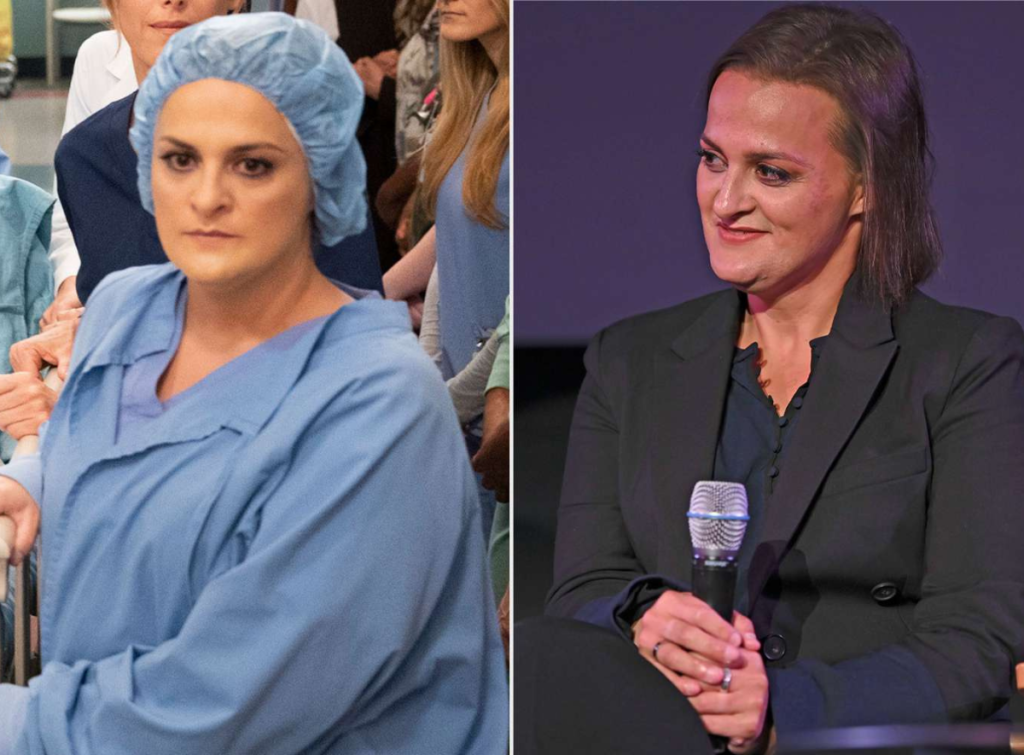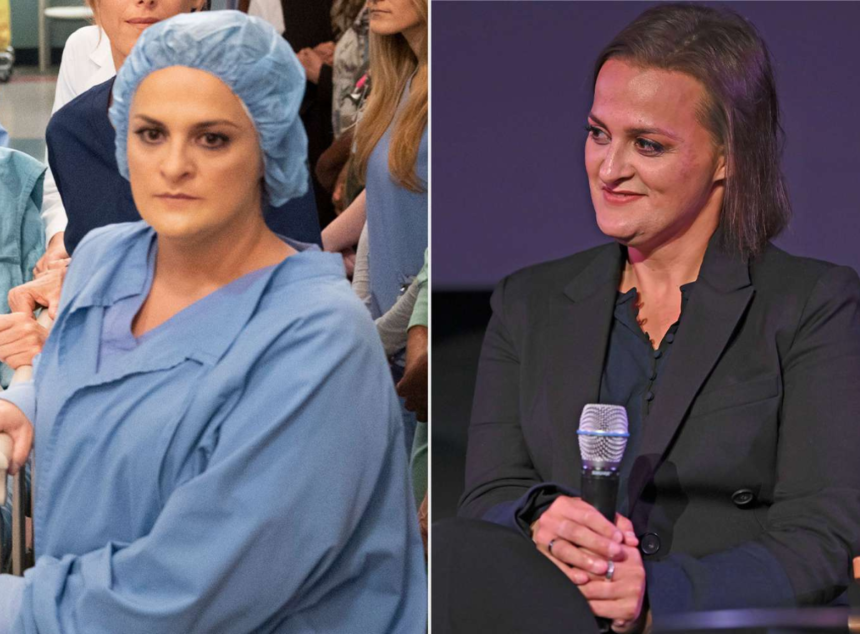Grey’s Anatomy, known for its emotional twists and gut-wrenching stories, has captivated viewers for over 21 seasons. But behind the scenes, one of its writers, Elisabeth Finch, was weaving a plotline that even the show’s biggest fans couldn’t predict—her own. Finch, a former writer and executive producer, built a career on shocking plot twists, but her most scandalous story wasn’t fiction; it was her life, riddled with lies.
Finch’s fabrications, spanning years, are at the heart of Anatomy of Lies, a new Peacock docuseries directed by Evgenia Peretz and David Schisgall. The series peels back the layers of deception that Finch spread throughout her career, where she blurred the lines between personal suffering and professional storytelling, using her own lies to bolster her reputation in Hollywood.
The Rise and Fall of a Grey’s Anatomy Writer
 “Anatomy of Lies: Unraveling
“Anatomy of Lies: Unraveling
Elisabeth Finch joined Grey’s Anatomy in 2014, writing 13 episodes over seven seasons. She had previously worked on shows like True Blood and The Vampire Diaries, but it was her harrowing personal story—a battle with bone cancer—that first caught the attention of Grey’s creator Shonda Rhimes. Finch’s essay about her struggle with chondrosarcoma was published in Elle magazine, and it played a pivotal role in landing her a coveted position on the Grey’s Anatomy writing team. What Finch left out? She never had cancer.
Her gripping personal story gave her job security on the show. When her work fell short, Finch’s battle with cancer shielded her from criticism or possible firing. She even shaved her head and wore a fake medical port to keep up the façade. Former colleagues, like writer Kiley Donovan, reveal that Finch’s illness saved her job when her writing didn’t. Her fabricated health crisis bought her sympathy—and career longevity.
The Grey’s Anatomy Plotlines Borrowed from Lies
Finch didn’t just lie about her life; she inserted her fabrications into Grey’s Anatomy storylines, turning her deceit into TV drama. In Season 15, one of the main characters, Dr. Catherine Fox, played by Debbie Allen, was diagnosed with chondrosarcoma—the same form of cancer Finch falsely claimed to have. Viewers were moved by the powerful storyline, and Finch even garnered attention for writing about her “real-life” experience with the disease.
One of her most shocking thefts came from a fellow writer on the show. Donovan confided in Finch that her mother had been raped, a traumatic experience that led to her birth. Months later, Donovan’s personal story appeared in a Grey’s Anatomy episode, without acknowledgment or consent. This blatant act earned Finch the nickname “trauma vampire” among some colleagues for her tendency to co-opt others’ pain for professional gain.
The Lie That Crossed a Sacred Line
One of Finch’s most egregious fabrications revolved around the 2018 mass shooting at the Tree of Life synagogue in Pittsburgh. Finch, who occasionally attended the synagogue during her college years, claimed to have lost a close friend in the tragedy. She told colleagues she spent hours cleaning up her friend’s remains and developed PTSD from the incident.
The documentary reveals that this was entirely fabricated. Finch was nowhere near Pittsburgh at the time and was instead celebrating Halloween with friends, dressed as Wednesday Addams. This lie wasn’t just a personal transgression; it was one that preyed on real-life tragedy for personal sympathy and attention.
A Tangled Web of Relationships
The lies extended into Finch’s personal life, impacting her relationships in profound ways. During a stay at a treatment facility in Arizona, where she was supposedly recovering from PTSD, Finch met Jennifer Beyer, a woman grappling with trauma from an abusive marriage. Finch and Beyer fell in love, and Finch eventually moved to Kansas to help raise Beyer’s five children.
But even in this deeply personal relationship, Finch’s lies persisted. She used details from Beyer’s life—like the EMDR therapy Beyer underwent for trauma—in Grey’s Anatomy storylines. As Finch’s web of deceit unraveled, Beyer discovered the truth about her partner’s long history of manipulation. Finch had even lied about her brother’s suicide attempt, a plot point that mirrored another Grey’s episode. The kicker? Finch’s brother was alive and well, practicing medicine in Florida.
The Lack of Closure
Anatomyof Lies brings Finch’s elaborate deceptions to light, but it leaves viewers with more questions than answers. Finch declined to be interviewed for the series, offering no explanation or apology beyond a brief, surface-level statement on social media. Former colleagues and friends, like Andy Reaser, express disbelief and frustration over how Finch could spread so much hurt without a clear motive.
Despite uncovering so many lies, the documentary doesn’t offer the closure Grey’s Anatomy fans might expect from such a convoluted story. Finch’s true motivations remain elusive, a mystery left unsolved. While Grey’s Anatomy is known for tying up even its most complex plotlines, Finch’s real-life narrative ends without resolution.
Conclusion
Elisabeth Finch’s deceitful actions may have boosted her career in the short term, but the fallout has left an indelible stain on her professional and personal reputation. Anatomy of Lies unpacks the shocking extent of her dishonesty, revealing how she manipulated those around her and wove her lies into the fabric of one of television’s most beloved shows. In the end, Finch’s life became a story far more unbelievable than anything she wrote for Grey’s Anatomy—but without the closure fans have come to expect.






